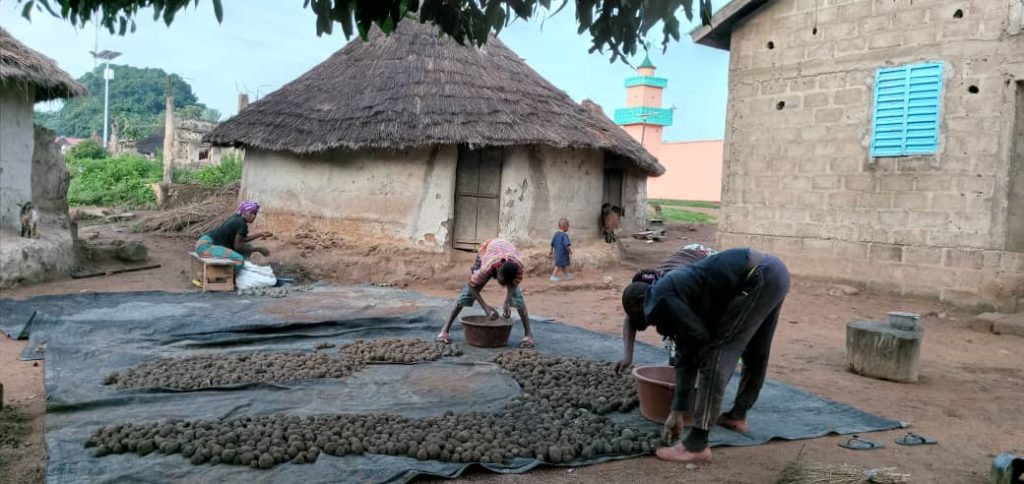Newest ETH4D Research Challenges 2021
The Group of Forest Management and Development is collaborating with the NGO arboRise to investigate low-cost sustainable reforestation with seedballs in Guinea. The Sustainable Agroecosystems Group, Vivamos Mejor Guatemala and Mosan are developing and evaluating an effective faeces biochar soil amendment for dry sanitation.

Research Challenge: Low-cost sustainable reforestation with seedballs
The project addresses the global challenge of affordable and sustainable reforestation in Guinea with the local resource seedball as a potential solution. Current reforestation projects try to reduce costs by concentrating on single tree species which requires expensive nurseries and create unsustainable monocultures. In contrast, through an affordable, efficient, bottom-up and participatory approach, arboRise increases the number of species and selects those trees useful for the local population. Millions of seeds are harvested locally by local residents, coated with a protective mixture of charcoal and clay, and directly sown in the same region on multiple land patches. The ForDev Group will assess the social impact of the actions to ensure an adaptive and responsive reforestation process. Thereby importance is given to socially informed dialogues and monitoring processes, which can provide access and control rights over restored landscapes, giving control to local communities over their development pathway. By demonstrating the performance of low-cost sustainable reforestation with seedballs, the project aims to boost reforestation projects worldwide to ultimately provide a major contribution in the fight against climate change.
ETH Principle Investigator: Dr. Claude Garcia, ForDev
Project Partner: external page arboRise
Research Challenge: Human faeces-derived biochar for agriculture
The aim of the project is to develop an effective faeces-derived biochar soil amendment by enriching it with source-separated urine as well as organic compost. The project follows the premise that recovery and value-added utilisation of excreta through pyrolysis could provide a safe, decentralised, and simple to install excreta management facility for dry sanitation solutions in low- and middle-income countries while simultaneously closing the nutrient loop and improving soil quality. The application of biochar in agriculture has received extensive attention due to its potential in restoring soil health by improving soil structure, thus increasing microbial activity, bioavailable nutrients, and water and fertiliser retention capacity. Moreover, its porous, sponge-like structure can lead to effective nutrient absorption and slow nutrient release leading to decreased loss and more balanced nutrient fluxes, making it potentially a base for slow-release organic fertilisers. To date, little work has been done to assess the potential of biochar produced from human faeces, a currently underutilised organic source available in enormous volumes.
The study will employ Farmer Participatory Research (FPR) methodologies involving farmers throughout the process, ensuring the development of products that are suited socially, culturally, and practically to smallholder farmer conditions.
ETH Principle Investigator: Prof. Johan Six, Sustainable Agroecosystems
Project Partner: external page Vivamos Mejor Guatemala, external page Mosan
ETH4D supports both projects through the ETH4D Research Challenges Grant. Call for applications is currently open until 30 September 2021. Learn more here.